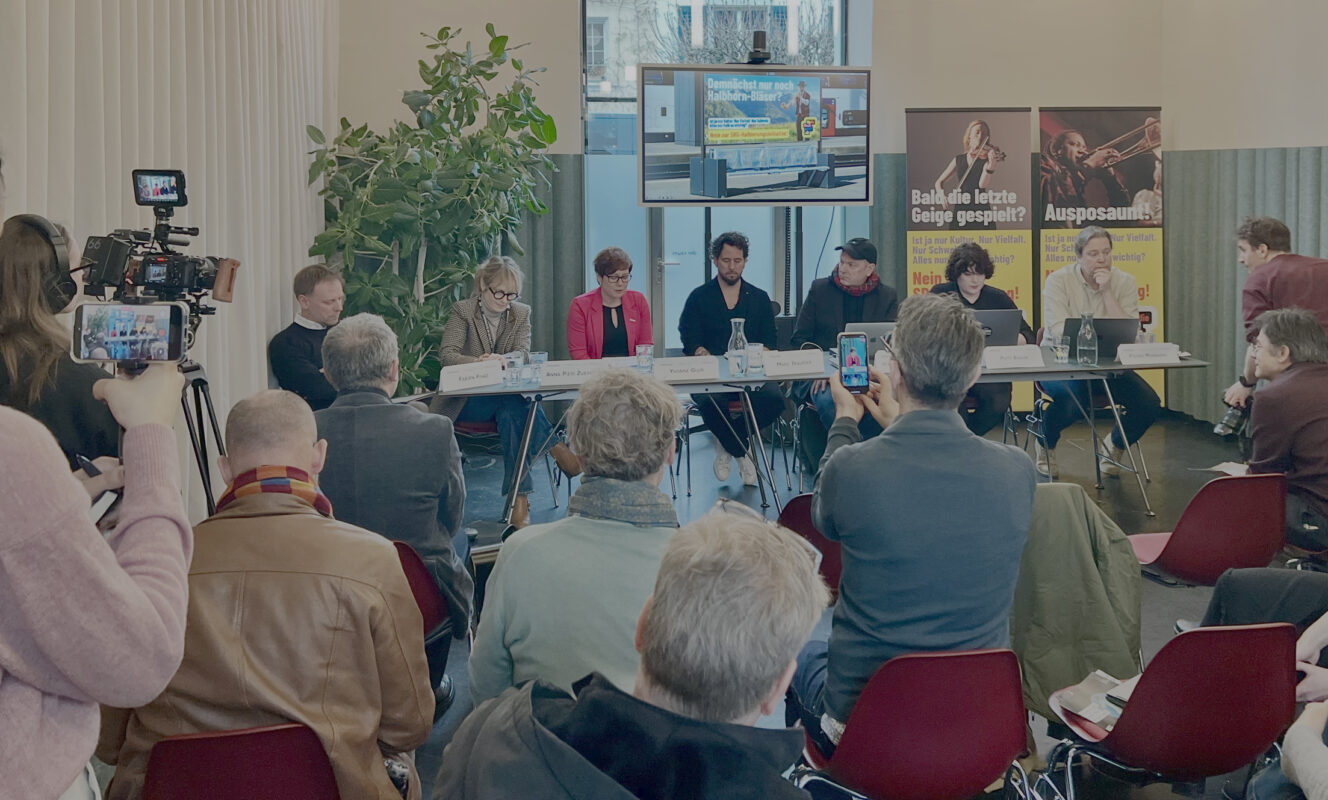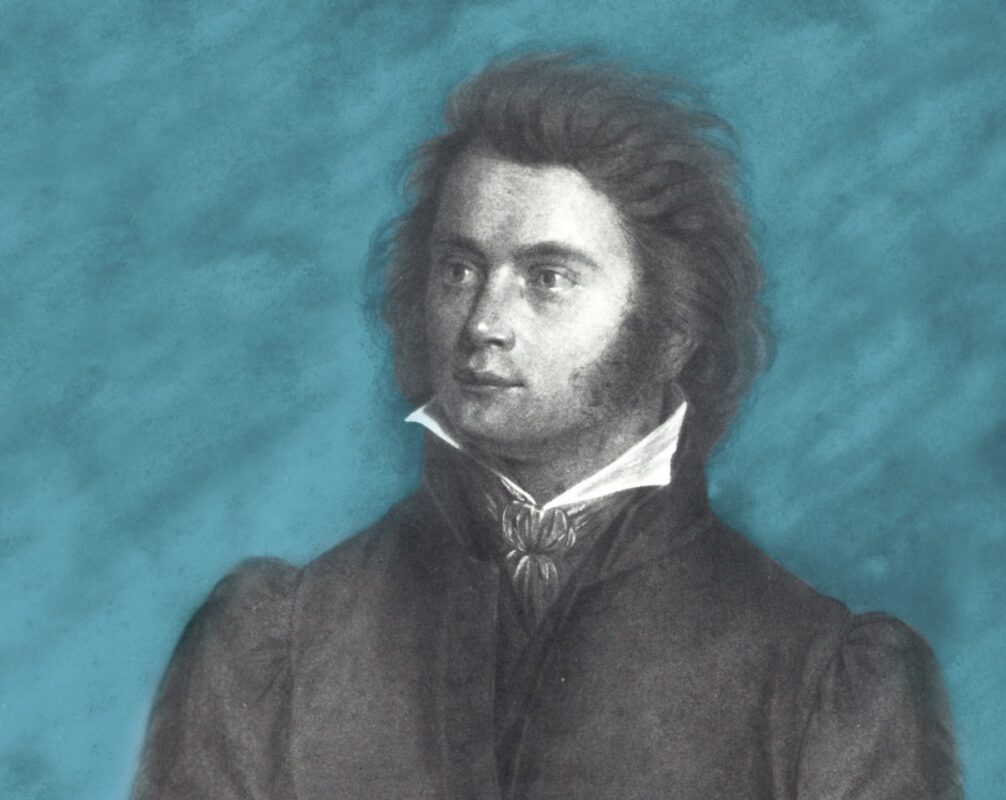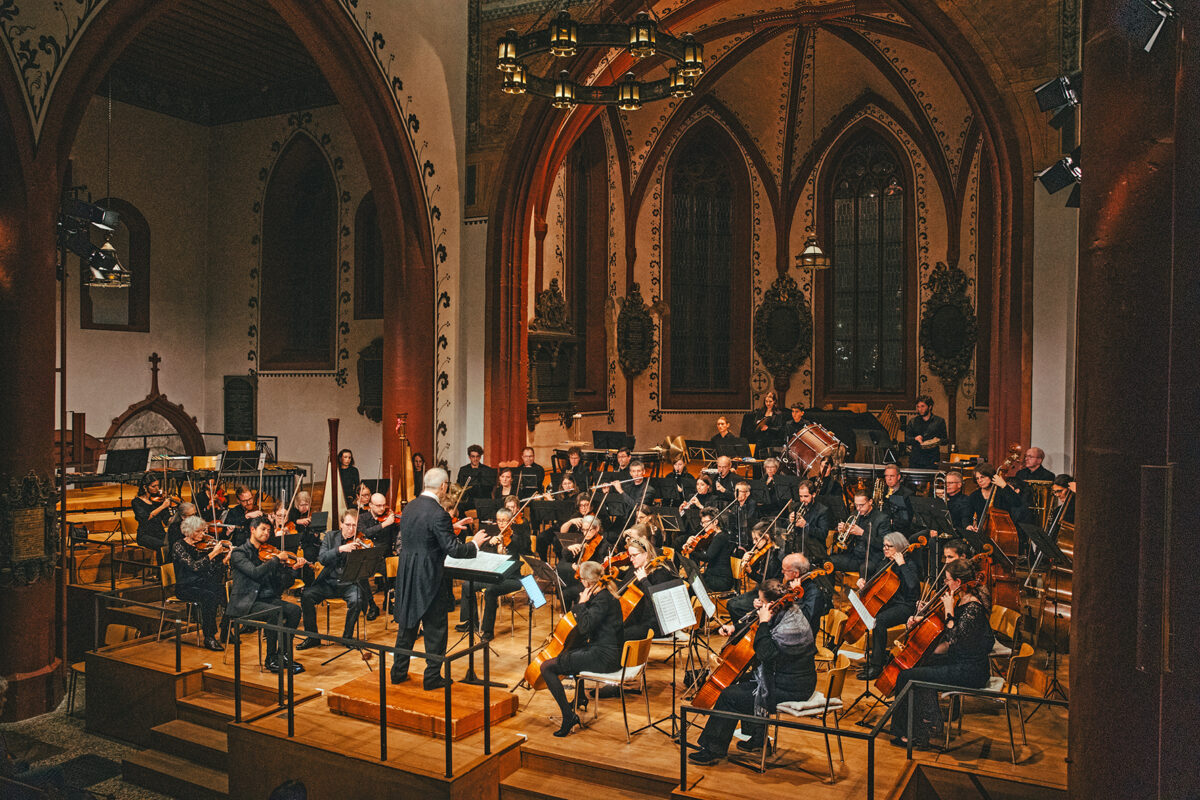Being human as an unattainable state - Du Yun at the Lucerne Theater
The Chinese-American composer Du Yun is a guest at the Lucerne Theater and celebrated a multiple premiere on October 27.
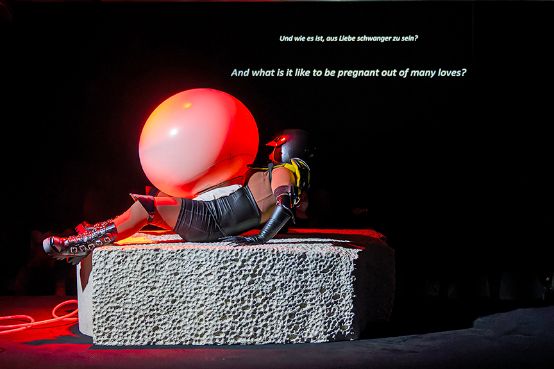
Humanity does not have the best reputation at the moment. Destruction of the planet in the present, war and violence in the past. Nevertheless, the protagonists of Du Yun's chamber opera A Cockroach's Tarantella and Customs exactly after that: Being human. The Shanghai-born, New York-based composer thus goes against the spirit of the times. The human being is not presented as a threat, but as a utopia. However, whether it is flattering to be the target of the longings and dreams of cockroaches and ghosts remains to be seen.
The result is Customs (Italian for clod of earth) in 2004 as her doctoral thesis at Harvard. Since then, Du Yun has had an impressive career that has taken her and her works around the globe. Her music, which blends a wide variety of styles, is so successful that she was even awarded the Pulitzer Prize for Music in 2017. It is now exciting to be able to experience the early piece as a European premiere. And for the first time together with the piece that was conceived shortly afterwards as a possible prelude to it A Cockroach's Tarantella.
Opera without singing
The two works are held together by blood and tears. Two liquids that apparently make up the human condition. At least for Oudfy, the cockroach, a speaking role that Yun himself embodies in the performance at the Lucerne Theater. She stands on stage like Robocop, with a belly that continues to grow throughout the 20-minute performance. It is her fifth pregnancy this year and she has had enough of being in constant expectation. Because since copulating once as a very young nymph, she always has been. She dreams of becoming pregnant out of love as a human and being able to mourn the death of her children, to cry. At her last birth, her blood was red instead of the usual yellow, and she now interprets this as a sign that she will be born as a human at her next rebirth.
Oudfy's monologue, which revolves around herself, is recited by the first-person narrator, accompanied only by a string quartet. A close, intimate setting that emphasizes Oudfy's loneliness and reinforces her desire for human togetherness. This is complemented by music that thrives on the contrast between modern and strongly romanticized sounds and thus underlines the text, which oscillates between grotesque and honest despair. However, despite these efforts, the fate of the cockroach rebelling against this is only touching to a limited extent. This may have something to do with the dominance of the lyrics, which have aged worse than the music, which still seems fresh. But perhaps it is also due to our reception habits. An opera in which there is no singing is difficult for us to understand, as it is precisely in the arias that the emotions are expressed. In the Chinese opera tradition, however, the arias are poems, as Du Yun describes. A certain alienation between the composer and her Swiss audience remains.
-
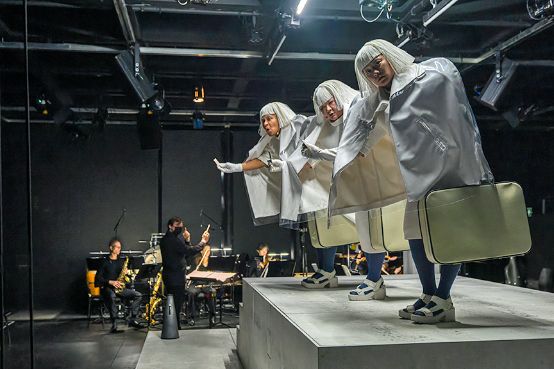
Du Yun, Misaki Morino and Anna Bineta Diouf in "Zolle", directed by Roscha A. Säidow In the background an ensemble of the Lucerne Symphony Orchestra under the direction of Alexander Sinan Binder
Wild, harmonious mix of styles
This fits in with the whole evening, because "foreignness" is the big theme of Customs. A ghost returns to her home village and realizes that she is now just as much a stranger there as she is in the spirit world. He, or rather she, recapitulates her earlier life, which was determined by the long family tree of the ancestors whose blood ran through her veins. Ever since she burst into tears as an eight-year-old at the grave of her grandparents, who were actually unknown to her, she could hardly wait for her name to be written on this long roll of paper. But now she is no longer recognized by her family and has become a stranger to her homeland.
This spirit is again embodied by Yun as the narrator, but also by the soprano Misaki Morino and the mezzo-soprano Anna Bineta Diouf. The tripartite division of the protagonist is an idea of the director Roscha A. Säidow, who thus splits up the soprano role envisaged by Yun once again. In Customs is sung correctly, even if the text is only pseudo-Italian. This makes the piece more complex than A Cockroach's Tarantellamore tangible. The seven-piece chamber orchestra under the direction of Alexander Sinan Binder also sounds much fuller, probably also because of the sometimes unfamiliar instruments including plastic kazoo and electronics. In the wild but always harmonious mix of styles, the historicizing passages, the pseudo-Italian arias and the baroque madrigal are particularly striking. For it is these sounds, which are actually familiar to our ears, that seem strange in the musical landscape and translate the melancholy of the lost soul into musical nostalgia.
The most convincing effect Customs towards the end, when the spirit, unable to decide between this world and the hereafter, transforms into the eponymous lump of earth. A metamorphosis that takes place in enchanting music, almost spherical, without the need for much explanatory text. And as Säidow's staging is now also on top form, illustrating the process in an understandable way and yet always remaining atmospherically in tune with the music, we are really drawn into this story at the end. Or is Du Yun's art simply the least foreign to us here?
Further dates: 5.11. / 12.11. / 13.11. / 18.11.






